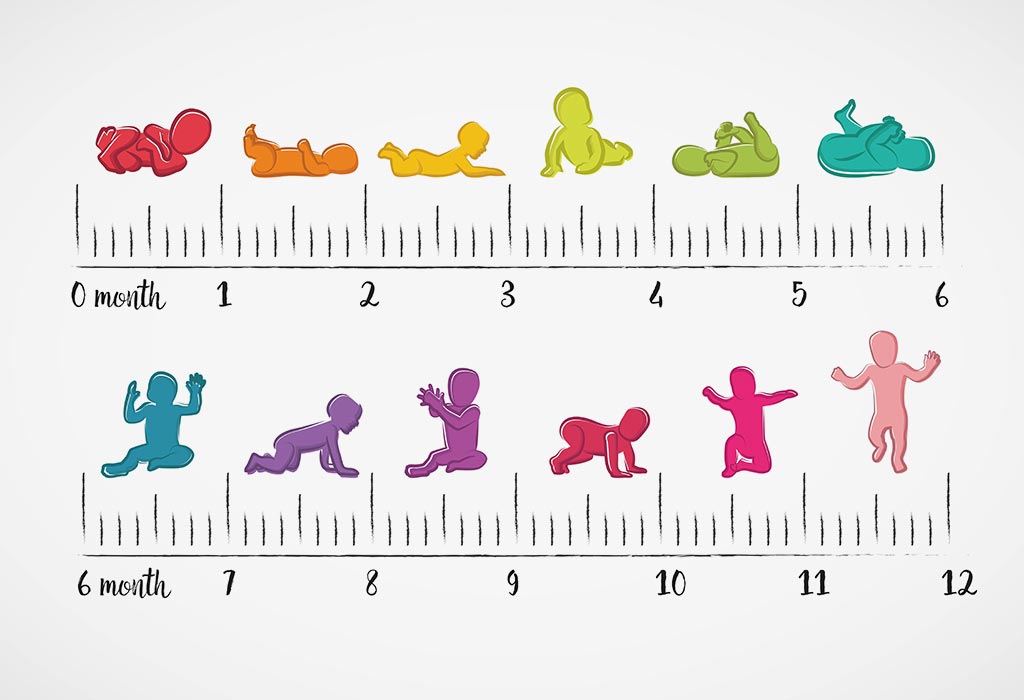 Source: bing.com
Source: bing.comWelcoming a new life into the world is nothing short of a miracle. As a parent, it is natural to be eager to see your baby grow and develop. The first year of a baby’s life is a time of remarkable transformation, where your little one will go from a helpless newborn to an active and curious toddler. This guide will take you through the key milestones of 1 to 12 months baby development.
Table of Contents
1 Month
At one month old, your baby is still adjusting to life outside the womb. They spend most of their time sleeping, eating, and crying. Their eyesight is still developing, and they can only focus on objects within 8 to 12 inches of their face. They may also start to recognize your face and voice.
2 Months
By two months old, your baby’s sleep patterns will start to become more regular, and they will be able to stay awake for longer periods during the day. They may also start to smile and coo, and their neck muscles will become stronger, allowing them to lift their head briefly when lying on their tummy.
3 Months
At three months old, your baby will become more interactive and social. They will start to reach and grab for objects, and they will be able to hold their head up for longer periods of time. They may also start to roll over from their tummy to their back.
4 Months
By four months old, your baby’s motor skills will continue to develop, and they will be able to reach for and grasp objects with more precision. They may also start to babble and make more complex sounds. Some babies may even start to sit up with support.
5 Months
At five months old, your baby’s physical development will continue to progress rapidly. They will be able to roll over in both directions and may even start to crawl. They may also start to develop a preference for certain types of food, and you can start introducing solid foods at this stage.
6 Months
By six months old, your baby will start to develop a sense of object permanence, which means they understand that objects continue to exist even when they can’t see them. They may also start to sit up on their own and develop a more advanced grasp, using their thumb and fingers to pick up small objects.
7 Months
At seven months old, your baby’s cognitive development will continue to progress. They will start to understand cause and effect and may even start to imitate your actions. They may also start to show a preference for certain toys or activities.
8 Months
By eight months old, your baby will start to develop a stronger sense of independence. They may start to crawl or even pull themselves up to standing using furniture or other objects as support. They may also start to develop separation anxiety and become more clingy when you leave them with other caregivers.
9 Months
At nine months old, your baby’s communication skills will start to improve. They may start to say their first words, and they will be able to understand simple instructions such as “no” or “come here.” They may also start to develop a sense of humor and enjoy making you laugh.
10 Months
By ten months old, your baby will continue to develop their physical abilities. They may start to take their first steps or walk while holding onto furniture or other objects. They may also start to develop a more sophisticated understanding of cause and effect.
11 Months
At eleven months old, your baby’s social skills will start to improve. They may start to interact more with other children and become more aware of their own emotions and the emotions of others. They may also start to develop a sense of empathy and comfort others when they are upset.
12 Months
By twelve months old, your baby will have come a long way since their first days of life. They may start to say more words and show a greater understanding of language. They may also become more adventurous and curious, exploring their environment with increasing confidence.
 Source: bing.com
Source: bing.comIn conclusion, the first year of your baby’s life is full of exciting milestones and achievements. Every baby is unique and will develop at their own pace, so don’t worry if your little one doesn’t hit every milestone at exactly the same time as other babies. As long as your baby is healthy and happy, they are on the right track.
Frequently Asked Questions
Q: How can I encourage my baby’s development?
A: The best way to encourage your baby’s development is to provide them with a safe and stimulating environment. Give them plenty of opportunities to play, explore, and interact with you and other caregivers. Talk to them often, read to them, and sing to them.
Q: When should my baby start crawling?
A: Every baby is different, but most babies start crawling between six and ten months old. Some babies may skip crawling altogether and go straight to walking.
Q: When should I start introducing solid foods?
A: Most babies are ready to start solid foods around six months old. Talk to your pediatrician for personalized recommendations.
Q: When should my baby start talking?
A: Most babies start saying their first words around nine to twelve months old, but some babies may start talking earlier or later.
Q: What if I’m worried about my baby’s development?
A: If you have concerns about your baby’s development, talk to your pediatrician. They can perform assessments and refer you to specialists if necessary.
